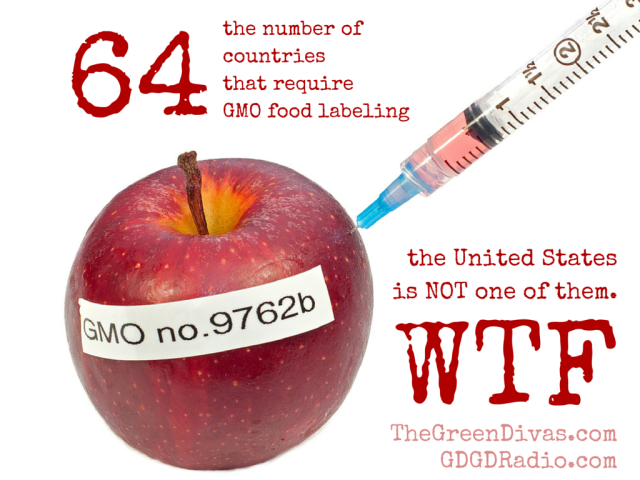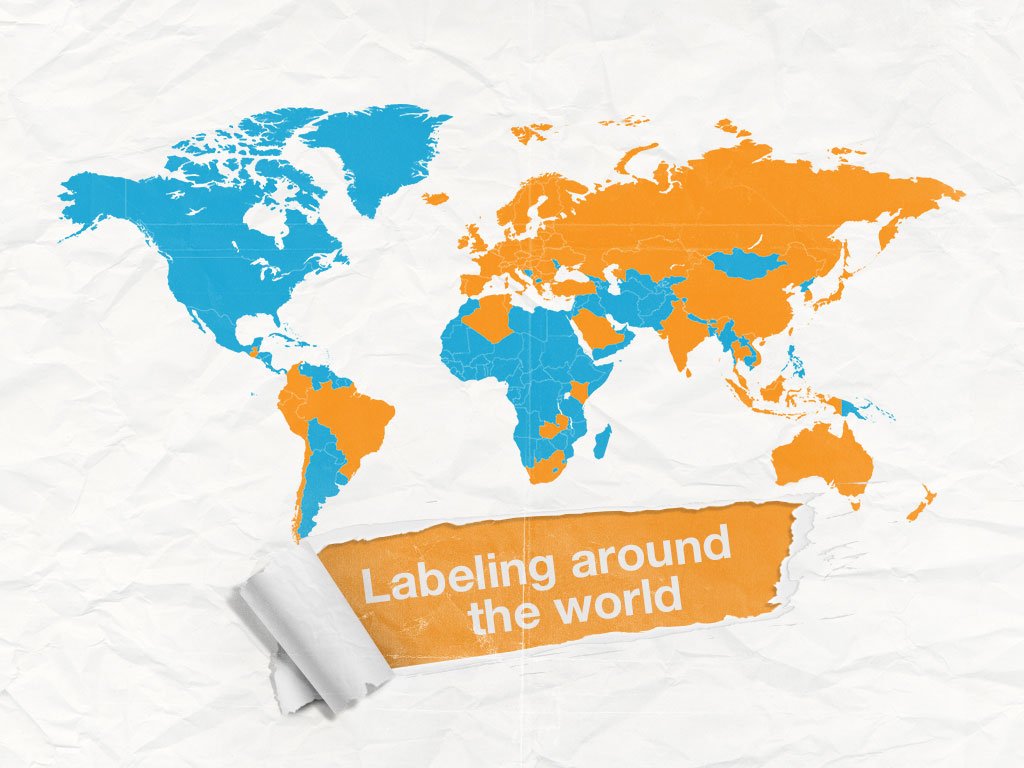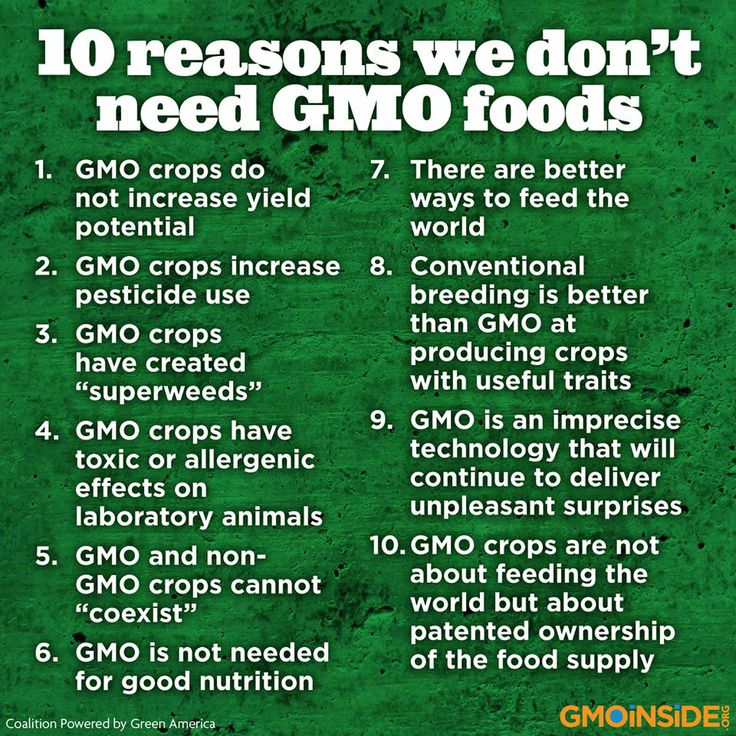And reasons we need GMO food labeling…

There’s a movement afoot in around the U.S. to make GMO food labeling the law of the land (note: GMO labeling is required in 64 countries!).
Jack Miller, from Food and Water Watch Illinois, is one of the boots on the ground working to activate people in my community to help make it happen. Listen to this special Green Divas myEARTH360 Report with Jack talking about getting things going for GMO food labeling.
Then continue on for the infographic and to learn more about GMO food and what you can do…
LISTEN:
WTF is a GMO?
Genetic engineering modifies the DNA of crops to display specific traits, such as a resistance to pesticides and herbicides. Genetically engineered (GE) crops are often also referred to as genetically modified organisms (GMOs) or biotech crops. In recent years, the Food and Drug Administration began paving the way for approval of GM animals, such as salmon. The first genetically modified animal approved for human consumption, supporters of GM salmon claim it grows at twice the normal rate. The approval of GM salmon could open the floodgates for GM cows and pigs, which biotech companies are waiting in the wings to finally commercialize after years of research and development. ~ Food and Water Watch
Read the Food and Water Watch Case for GMO food Labeling and find out how much GMO labeling will cost.
64 Countries (except the U.S.) require GMO food labeling.
WTF? Excuse my language (again), but come on.
Currently, 64 countries around the world require labeling of genetically engineered foods. Unlike most other developed countries – such as 15 nations in the European Union, Japan, Australia, Brazil, Russia and even China – the U.S. has no laws requiring labeling of genetically engineered foods. ~ Just Label It

Take Action!
Sign the Food and Water Watch petition to ask your elected officials to require labeling for all genetically engineered foods.
Find out what you can do to become part of the Food and Water Watch GMO food labeling movement in your community here.
The 64 countries requiring GMO food labeling…
Source: The Center for Food Safety
- Australia
- Austria
- Belarus
- Belgium
- Bolivia
- Bosnia and Herzegovina
- Brazil
- Bulgaria
- Cameroon
- China
- Croatia
- Cyprus
- Czech Republic
- Denmark
- Ecuador
- El Salvador
- Estonia
- Ethiopia
- Finland
- France
- Germany
- Greece
- Hungary
- Iceland
- India
- Indonesia
- Ireland
- Italy
- Japan
- Jordan
- Kazakhstan
- Kenya
- Latvia
- Lithuania
- Luxembourg
- Malaysia
- Mali
- Malta
- Mauritius
- Netherlands
- New Zealand
- Norway
- Peru
- Poland
- Portugal
- Romania
- Russia
- Saudi Arabia
- Senegal
- Slovakia
- Slovenia
- South Africa
- South Korea
- Spain
- Sri Lanka
- Sweden
- Switzerland
- Taiwan
- Thailand
- Tunisia
- Turkey
- Ukraine
- United Kingdom
- Vietnam
Not only does the food industry claim (and like to spend LOTS of money to make their point) that GMO labeling is unnecessary, they say it will raise food costs, put a burden on grocers and taxpayers, among other things. False claims, according to Food and Water Watch. Find out how much GMO labeling will really cost.
Ten Reasons We Don’t Need GMOs

Bonus:
Listen to the latest Green Divas Radio Show podcast for more great green topics…
You can listen to the latest Green Divas Radio Show—and other green and healthy living podcasts—daily on GDGDRadio.com (or get the GDGD Radio app)!
Hold on! Another bonus!
Check out this trailer for the documentary film GMO OMG…
[dynamic-sidebar id=’Custom Widget 2′]
Green Bean
February 20, 2015 at 2:35 pm
Money talks! That is clearly the only reason we don’t have GMO labeling here in America. The power of Monsanto and other GMO corporations. WTF, indeed!
karen
February 20, 2015 at 3:46 pm
Out government has been bought by lobbyists. Labeling may not happen in my lifetime. It’s a sad fact. BUT, we can’t give up for our children’s sake. They are being educated how corrupt this system is. We must keep educating them so their lives won’t be as effed up as ours are.
Anne
February 20, 2015 at 5:18 pm
Good details! And we still need to do more convincing of small farmers who need encouragement to go organic, non-GMO!